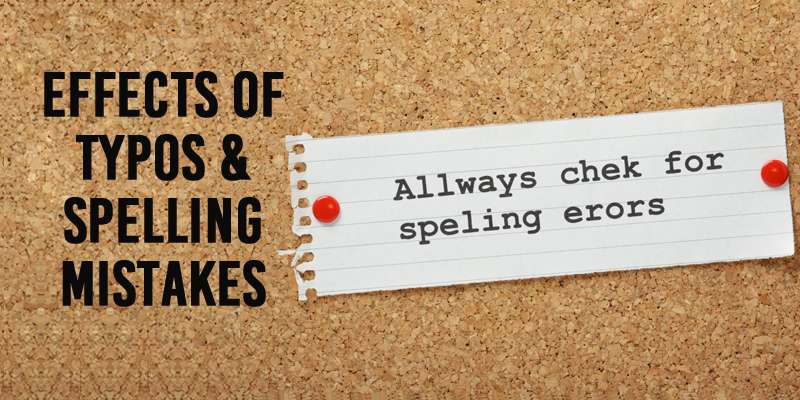Typos & Spelling Mistakes – How Poorly Written Content affects your Website
At its core, the Internet relies significantly on the written word and that is something that we should never forget. There is a tremendous amount of content posted on the Internet. Of this, the bulk is written content; and the remainder is comprised of videos and pictures and other types of material.
When people want to learn something or find a product, a service, entertainment, news or almost anything on the Internet, they will search for what they are looking for by using search engines such as Google, Bing, Yahoo! and others. Now, written content is one of the primary ways in which search engines categorize websites. If your website has typographical errors and bad grammar, then it is very likely that you are not going to get the Internet traffic that you are looking for. Professional term paper writers know how to cope with it.
Search engines have some flexibility when it comes to determining the differences between misspelled words and properly spelled words. But when you rely on a search engine algorithm to compensate for your bad spelling, you are asking for trouble.

For example, if your pastry business wants to advertise bear claws for sale and you continually spell it “bare claws”, don’t be surprised if Google penalizes the rank of your website. Common misspellings such as “teh” instead of “the” may also cause the search engines to ding your website, resulting in less web traffic than you would like.
A website with typos, misspelled words and bad grammar turns people off and prevents them from coming back. One of the more important aspects of owning a website is to generate repeat traffic for new content. If visitors cannot use your content because it is poorly written, then it will not matter how often you update your website – they will not want to come back!
Your professionalism and credibility can also be called into question when you allow typos, spelling errors and grammar on your website. People will not take you seriously if it appears that you do not care enough to present your information in a professional manner. Remember, just because your website is not selling books does not mean that people will tolerate poor content!
If you want people to consider you as an expert in your field and utilize your website as a resource, then you need to be concerned with presenting a proper & professional image. A large part of that professional image is making sure your content is free from spelling and grammatical errors. Invest in a spell-checker and, if needed, hire a proofreader to make sure that your content is always reliable and professional.
What has been your experience, when it comes to poor content quality?

